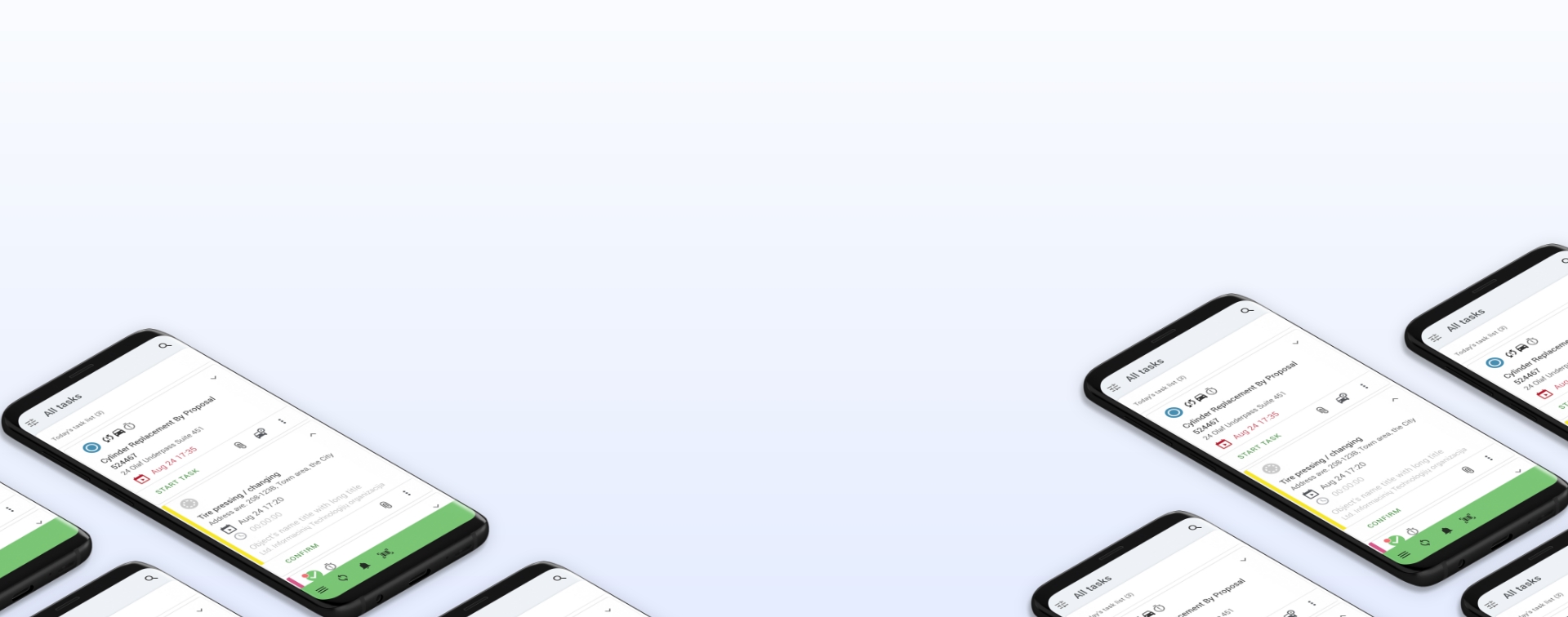Nowadays, field service organizations that want to stand out have to embrace digitalization. Leading companies understand that traditional methods of managing business can’t meet the current market and customer needs. Slow and incomplete procedures, lack of employee motivation, poor customer service call for innovative and automated solutions.
Integration with business, customer, accounting, and field service systems is a sure-fire way to step out and increase your business productivity. Field service businesses have loads of options.
However, while enterprise resource planning (ERP), customer relationship management (CRM), and accounting software are becoming the norm, field service management (FSM) business software doesn’t always get as much attention. It often makes sense as FSM software is designed for field service companies, while ERP is a more versatile tool.
The problem is that ERP solutions aren’t always enough to support both the administrative company’s processes and service teams. Some features of the two software solutions overlap, but they both have a different focus that, matched together, can bring more benefits to the company and your team.
But let’s begin by defining the two.
- Field service management (FSM) software helps with staff and enterprise resource planning, service delivery, as well as operational processes. The tool facilitates team scheduling, route planning, performance assessment, warehouse balance tracking, track inventory levels, job history logs, invoicing, reporting, and customer support.
- Enterprise resource planning (ERP) software is a tool designed to simplify daily administrative operations. It assists companies with field services such as accounting, project and time management, resource planning, budget calculations, warehouse balances, supply chain operations.
What is FSM software and what does it do?
Field service management software helps with staff and enterprise resource planning, service delivery, as well as operational processes. The tool facilitates team scheduling, route planning, performance assessment, warehouse balance tracking, track inventory levels, job history logs, invoicing, reporting, and customer support.
- FSM software focuses on service teams, their time and productivity management, task and route planning. While some main principles are the same, initially, FSM and ERP accounting software have different purposes.
- ERP software is designed to help companies manage daily business activities, such as accounting, project management, resource, and balance control. It focuses on back-office operations and the company as a whole.
What is ERP software?
Enterprise resource planning software is a tool designed to simplify daily administrative operations. It assists companies with field services such as accounting, project and time management, resource planning, budget calculations, warehouse balances, supply chain operations. The features solely depend on the tool you use and the specific integration but the features we have mentioned are what most businesses go for.
Some of the well-known ERP software providers:
How can FSM and ERP systems work together?
Inventory management and route tracking
Both of the two systems are created to assist in inventory monitoring. The ERP system allows keeping track of inventory levels, location, and transactions. Since ERP inventory management is generally used for sales and accountancy rather than the whole service, FSM software can be a productive add-on to your field team as it provides:
- Task tracking
- Access to parts in technicians’ vans
- Managing a field service workforce productivity
Another important thing for field companies is route tracking. Originally, the ERP system doesn’t track technicians’ routes. Therefore, FSM software complements ERP with GPS tracking, geofencing, and route mapping. These features are necessary for a productive and organized field service team.
Asset management
Both systems provide asset monitoring, yet on a different level. ERP systems can help establish the original asset record derived from a manufacturing or sales order, while field service management goes more into detail. So, FSM software can benefit your company with task tracking, parts used, monitoring fault codes, track warranties, and record maintenance history.
Resource and employee scheduling
ERP software performs general scheduling tasks like booking an installation date after a purchase order comes through. An ERP solution can create detailed invoices to send directly to customers, but it doesn’t provide as much functionality for team management and scheduling.
Field service management software becomes a handy tool to track technicians’ productivity, schedule their tasks and time. It allows you to follow individual and team progress, allocate calls more effectively, set KPIs for your field service team, optimize processes such as customer support and motivate employees.
Frontu FSM software integration with ERP systems
At Frontu, we believe that business management software has to work for your company, not against it. Therefore, we developed an easy FSM integration to complement your current systems.
Frontu mobile field service management software integration doesn’t require any back-office system changes because we install our solution as an addition to your business tools. This way, not only do you avoid lengthy and expensive onboarding and system replacement procedures, but you also get a fully customized solution.
How do you integrate?
Frontu offers customized integration. We provide a flexible API, so with your IT team or our partners’ help, we can integrate and customize the Tasker FSM solution. It’s an excellent solution for agile teams, as Tasker has a long list of market-leading add-ons, such as:
- Zapier to provide fast and painless integrations between Frontu and your business tools;
- Atlassian Jira for agile team management and time planning;
- Microsoft Power BI to collect data from multiple sources to get reports and data analysis on your business progress;
- Microsoft Navision and Axapta ERP systems for multifaceted business management experience.
If you have questions about the Frontu field service management software solution, don’t hesitate to contact us here. We will help you find the best solution to bring your team a fully automated business experience.

